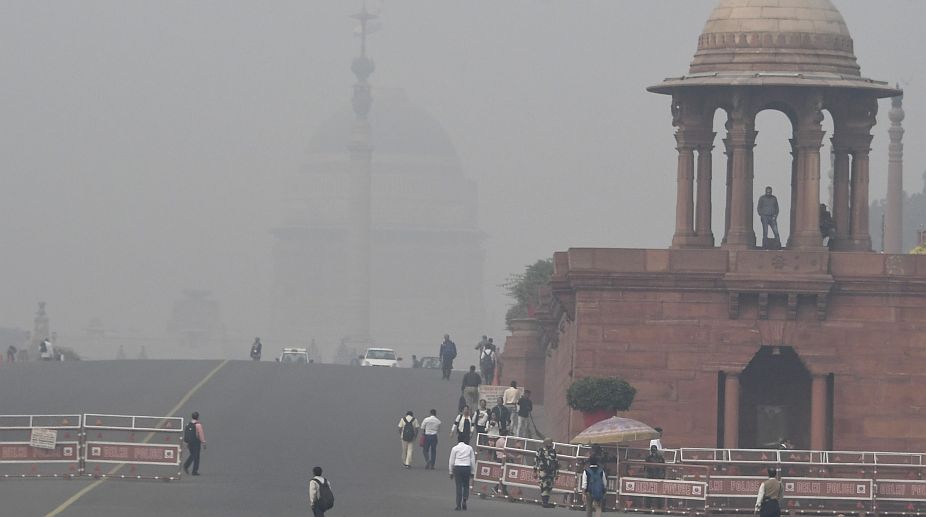The air quality in the National Capital Region, which was overall “very poor” on Monday with “severe plus” in certain areas of the national capital, will not improve even after a drizzle due to high pollution, officials said.
The India Meteorological Department (IMD) had predicted that light showers in NCR, including Delhi, between Monday and Wednesday will help to bring down the pollution level here.
Advertisement
However, with air quality hovering near severe levels, light showers will not be enough to provide clean air, especially in the long run.
“In case of rain, there is possibility of very little improvement… however, as per the IMD, the levels will stay in the very poor category. At present, the PM2.5 levels are already above 418 units in certain areas,” Shambhavi Shukla, a researcher at the Centre for Science and Environment (CSE) and member of the Environment Pollution (Prevention and Control) Authority said.
On Monday, some parts of the capital city witnessed a drizzle around 5.30 p.m. for a few minutes.
Major pollutant PM2.5, or pollution particles in air with diameter less than 2.5 micrometers, across 22 areas of NCR-Delhi dropped from 249 units at 5 p.m. (before the drizzle) to 248 units at 6 p.m. (after the drizzle), while across 16 areas in Delhi, the PM2.5 levels dropped from 244 units to 243 units within the said period.
According to experts, light rain may help abate pollution for a day but light showers also lead to deterioration of air quality.
“The rain intensity is very less. Drizzle increases air moisture, thereby leading to drop in minimum temperature. The overall effect of that is that air pollutants do not disperse. Unless there is good rain, air quality will remain very poor,” EPCA member Usmaan Naseem told IANS.
According to the Central Pollution Control Board (CPCB), Air Quality Index (AQI) of Delhi (361) at 4 p.m. was at the upper end of the severe level, while in Ghaziabad (463) and Noida (408) it was “severe”.
The PM2.5 values also increased over the past 24 hours. In the NCR, it was 248 units at 6 p.m. on Monday, as against 241 units on Sunday. In Delhi, it was 243 units as against 237 units on Sunday — about 10 times the safe limit as per international standards.
The air quality was described as “severe plus” at Anand Vihar (PM2.5 reading 431 against 389 on Sunday) in east Delhi; Delhi Technical University (PM2.5 428 units against 332 on Sunday) in north Delhi; Mathura Road (403 units as per SAFAR) in south-Delhi; Sector 125, Noida (374 units against 304 on Sunday) and Vasundhara in Ghaziabad (417 units against 367 on Sunday).
Meanwhile, at R.K. Puram in south Delhi and Mandir Marg in central Delhi, the air quality was severe with PM2.5 recorded at 270 and 261 units respectively at 6 p.m.
The safe limit for PM2.5, according to international standards, is 25 microgrammes per cubic metre and 60 as per the national standards.
According to the System of Air Quality and Weather Forecasting And Research (SAFAR), the air quality of NCR is set to deteriorate over the next three days.
Meanwhile, satellite images from the National Aeronautics and Space Administration showed sporadic incidents of large fires in the Delhi region and across Punjab, Haryana and Uttar Pradesh.











